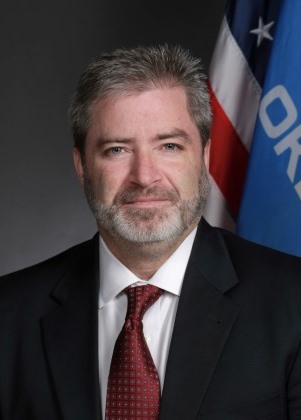Lawmakers examine impact of divorce rate on Oklahoma children, taxpayers
 Sen. Rob Standridge
Sen. Rob Standridge
Members of the Senate Committee on Health and Human Services this week examined whether the state may have an opportunity to reduce Oklahomas high divorce rate through policies that encourage families to stay together.
Requested by Sen. Rob Standridge, the study focused on strategies designed to lessen the social and economic costs of divorce. Standridge said reducing the states divorce rate would give children a better chance at life-long stability, while saving taxpayer dollars.
Studies have confirmed that when families stay together, they give their children a better chance to live more fulfilling lives and reach their potential, said Standridge, R-Norman. Policies that affirm the importance of marriage have the potential to positively impact the lives of thousands of families in need. In addition, states spend millions dealing with the resultant costs of divorce and family decline. I believe a more successful policy approach can limit the traumatic impact of divorce while controlling costs to taxpayers.
After a number of speakers testified regarding the ease of getting a divorce, Standridge said state policy should be directed toward strengthening the contract of marriage.
Marriage is a contract governed by the state, and as a number of speakers expressed, it is becoming nothing more than a piece of paper, he said. A contract meant to be a lifelong commitment should not be so easy to cast aside. Government is responsible for the weakening of marriage contracts, and the results have been devastating to the children touched by this problem. I believe we left this study with a better understanding of the traumatic impact of divorce, the cost to taxpayers, and most importantly the hardship to children.
Standridge and Rep. Jason Nelson this year authored a proposal that would require divorcing couples with minor children to receive education during a 90-day cooling down period after a divorce petition is filed. Senate Bill 961 was approved unanimously by the Senate but did not receive a hearing by the full House of Representatives.
Standridge said it would also be wise for the state to consider a program similar to a Minnesota initiative that offers reconciliation services to couples considering divorce. Dr. Bill Doherty of the University of Minnesota testified that 10 percent of couples educated through the Minnesota Couples on the Brink project were willing to give their marriage another chance.
In addition, Standridge lauded a proposal by Sen. Josh Brecheen and Rep. Tom Newell that would create a covenant marriage option for Oklahoma. The bill would have created an optional marriage license requiring premarital education and limiting grounds for divorce. Senate Bill 105 was also not heard by the full House of Representatives.
Timothy Tardibono, President of the Family Policy Institute of Oklahoma, said legislative solutions could result in significant savings to state government. He cited studies showing 40 percent of couples in the divorce process are interested in reconciliation.
If we can reduce those unnecessary divorces, Oklahoma children will be safer and more successful, all while saving taxpayer dollars.
Newell thanked Standridge for requesting the study.
The divorce epidemic is devastating to spouses, children, and society, said Newell, R-Seminole. The direct and indirect costs to our state are huge. Public policy alone will not resolve this issue, but I'm thankful to Sen. Standridge for leading te effort to discover what the Legislature's role is in addressing this problem.
 Oklahoma Senate
Oklahoma Senate

